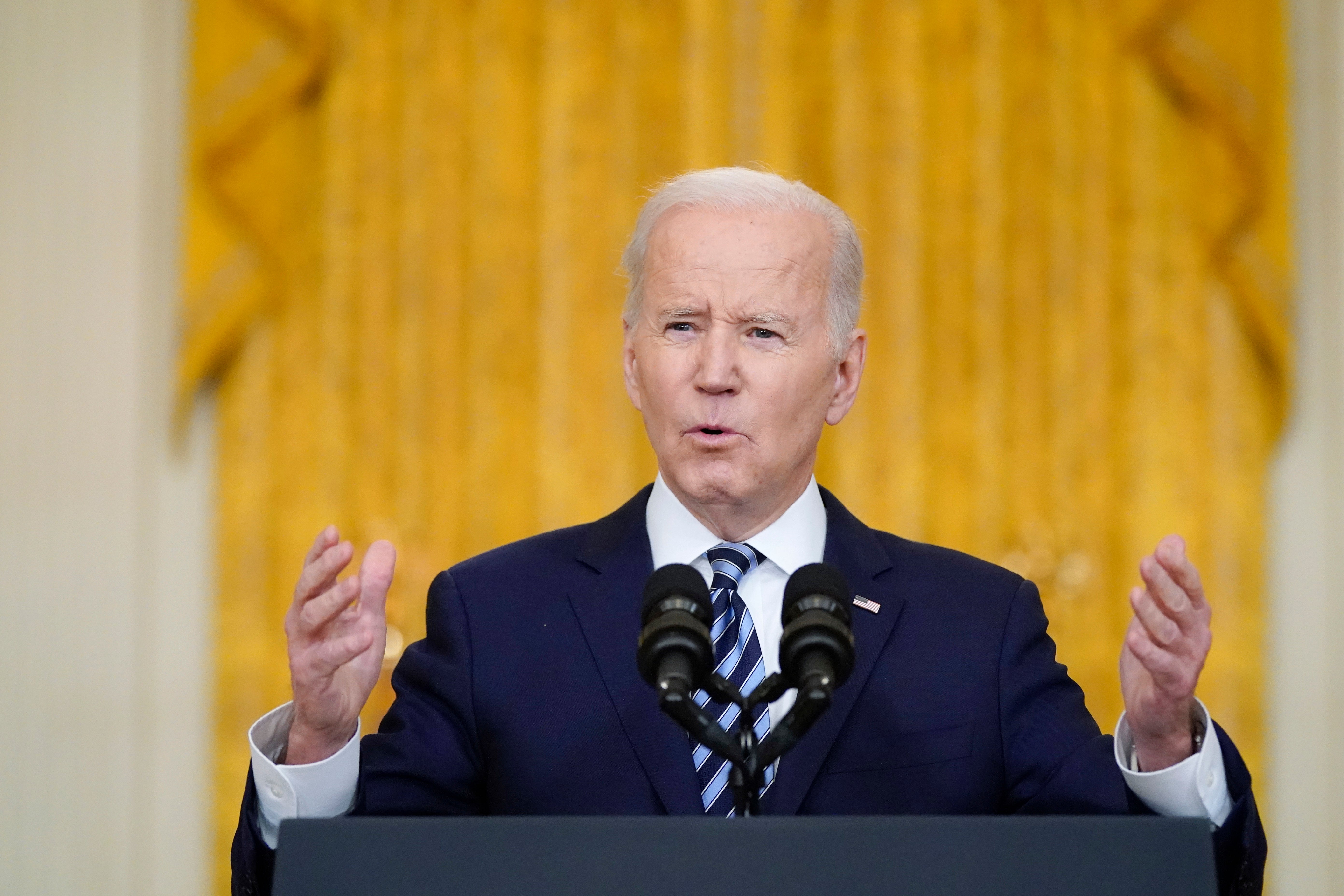President Biden’s climate agenda is now lost in a fog of war
The High Court may gut the authority of the Environmental Protection Agency to regulate the emissions of greenhouse gases, writes David Callaway


Lost in the urgency of Russia’s invasion of Ukraine and turbulent financial markets, President Joe Biden’s climate agenda faces a death blow next week from the US Supreme Court.
Already rocked by the collapse of the President’s “Build Back Better” legislation, climate advocates now face the potential that the High Court may gut the authority of the Environmental Protection Agency (EPA) to regulate the emissions of greenhouse gases.
The court is scheduled to hear a case on 28 February, titled West Virginia v Environmental Protection Agency, which challenges a case from 2007 that wraps greenhouse gases with “air pollutants” in the laws that allow the EPA to regulate pollution as part of the Clean Air Act. At stake is not only the EPA’s authority, but potentially every government regulatory agency, as the case involves Congress’s right to delegate authority to other regulatory bodies.
If the name of the case makes you think of West Virginia Democratic Senator Joe Manchin, the coal baron who has singlehandedly blocked Biden’s entire climate agenda, you’re not wrong. West Virginia has set itself up as the leading climate antagonist in the US in recent years, despite the fact that many of its coal unions support transitioning to climate solutions such as renewable energy.
The case comes before a dramatically different Supreme Court that ruled five to four in 2007 in support of the EPA’s authority. Back then, Chief Justice John Roberts cast the majority vote to include greenhouse gases as part of what was considered harmful pollutants.
Now, opponents argue the law was always meant for particulate matter that was harmful to inhale by certain individuals in certain places, and should not be expanded to include the climate crisis, which arguably harms everyone, everywhere.
The case is part of a growing backlash against climate measures as opponents go from denial to defence, not just in the US but elsewhere. Indeed, as Europe faces its biggest war since 1945, little is being reported internationally about the twin storms that ravaged the UK the other week, and how the climate crisis is making these types of storms worse.
One hundred days out from Cop26 in Glasgow, the annual United Nations climate summit back in November, pushing for progress in fighting global warming has fallen down the list of global priorities, overshadowed by the potential for war, energy crises in Europe and Asia, and debilitating inflation and supply chain obstacles.
What’s worse, the war in Ukraine could prompt western sanctions against Russia that could lead it to cutting off Europe from its natural gas and oil exports, which account for almost 40 per cent of European energy usage (so far Putin has denied this will happen).
While the US and Great Britain are negotiating to find new energy supplies from the Middle East, the potential crunch could be catastrophic, coming in the middle of winter.
Back in Washington, it is entirely possible the Supreme Court will refrain from a worst-case scenario of gutting all regulatory agency authority, but the EPA’s ability to oversee greenhouse gas emissions is especially vulnerable given the make-up of the current court.
To keep up to speed with all the latest opinions and comment sign up to our free weekly Voices Dispatches newsletter by clicking here
While many Americans fear the new court roster will lead to devastating rulings against abortion laws, the removal of EPA authority will be a huge blow to the clean energy industry.
Should the Supreme Court make such a ruling, likely sometime early this summer, Biden’s climate agenda will be dead and buried ahead of the important midterm elections in November. The US will lose what precious little environmental reputation it has on the international stage and the world will have lost another year in what was supposed to have been the pivotal decade of the fight against global warming.
In a poll last week at the Munich Security Conference, the fear of the impact of the climate crisis outweighed concerns about Russia and the Ukraine. While that may be true, world leaders are making it abundantly clear that when it comes to the climate crisis they have better things to do. In that vacuum, the Supreme Court suddenly looks very dangerous.
David Callaway is founder of Callaway Climate Insights and former editor-in-chief of ‘USA Today’
Join our commenting forum
Join thought-provoking conversations, follow other Independent readers and see their replies
Comments
Bookmark popover
Removed from bookmarks